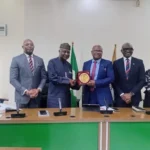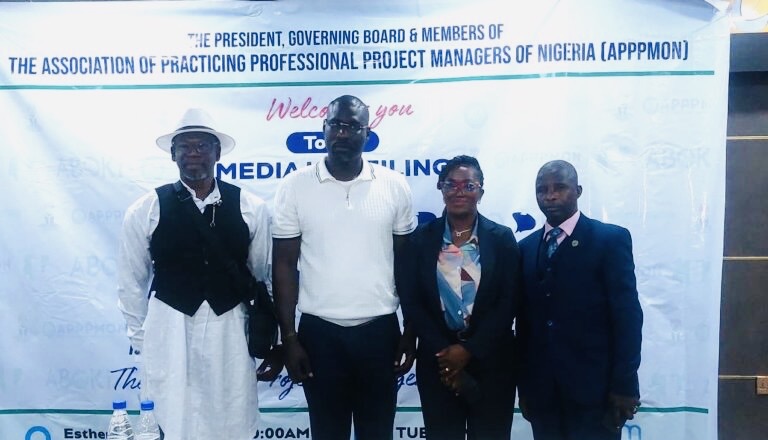By Desmond Ejibas
The Association of Practising Professional Project Managers of Nigeria (APPMON) has announced the launch of a specialised platform aimed at improving project execution in Nigeria.
Dr Yomi Ariyo, the National President of the association made the remark during a news conference while unveiling the ‘’APPMON Body of Knowledge and Innovation (ABOKI)’’ platform‘’ in Port Harcourt on Tuesday.
He said the platform was developed to address the specific challenges and opportunities associated with managing projects within Nigeria and similar emerging markets.
“The platform is more than a compendium of methodologies; it serves as a source of guiding insights and strategies tailored to our local context.
“By integrating global best practices with indigenous knowledge, ABOKI ensures that project managers are adequately equipped to effectively navigate the complexities of our socio-economic environment,” he explained.
Ariyo noted that APPMON, established in December 2024, had already begun taking practical steps to ensure that project execution was conducted in accordance with international best practices.
He added that efforts were underway to support the adoption and integration of the platform within national and organisational project management frameworks.
“As we unveil ABOKI, we are not merely presenting a document; we are ushering in a new era of project management in Nigeria.
“This body of knowledge is intended to be a living document, evolving in tandem with the ever-changing demands of our profession,” he stated.
Ariyo called on management professionals, industry leaders, policymakers, and the academic community to adopt the platform to elevate the standard of project delivery across the country.
Dr Inemi Stephen, South-South Zonal Coordinator of APPMON, remarked that while Nigeria did not lack in ideas or creative potential to embark on projects, the real issue lied in execution.
He attributed poor project execution to systematic challenges, conflicting frameworks, ethical lapses, and the use of imported models that are not suitably adapted to the nation’s environment.
According to Stephen, the country has lost more than N17 trillion due to failed or abandoned projects, including the over 13,000 projects reportedly abandoned by the Niger Delta Development Commission (NDDC).
“Today, we observe a tangible project landscape marred by abandoned roads, halted hospital constructions, and budgetary black holes.
“The scale and number of intangible projects – such as public awareness campaigns, educational programmes, health initiatives, and social interventions – that have failed or abandoned is unfathomable.
“Therefore, ABOKI stands as a structured, research-based, and practical response aimed at making future Nigerian projects explainable, comprehensible, deliverable, and commendable,” he added.
Stephen, who led the ABOKI research initiative, disclosed that the document comprised six-part methodologies, including Project Evaluation and Audit Standards, and Mediation and Arbitration for project success.
Additional components include Health, Safety, and Environmental standards applicable to all project types; Event Management and Crowd Control; and protocols for Proceeding Against Professional Advice. (NAN)
Edited by Jane-Frances Oraka











